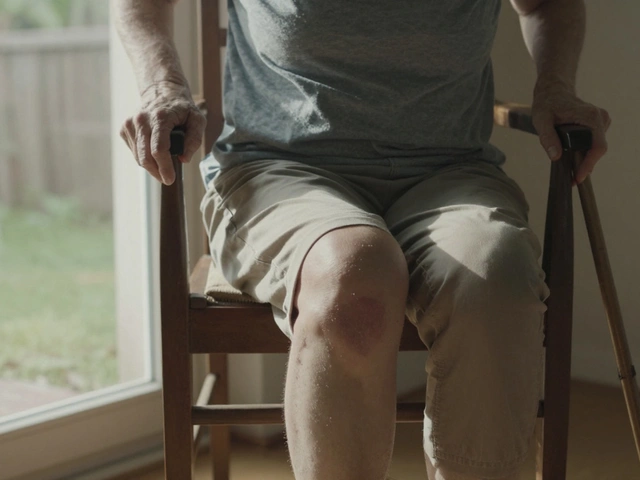Not all bone doctors do the same job. Wondering who’s right for your aching joints or fractures? Here’s the real scoop on bone specialists.
Read MoreBone Doctor: What They Do, How to Choose & Pain‑Free Recovery Tips
If your joints ache, a fracture lingers, or a surgeon’s note mentions "bone health," you’ll probably hear the term bone doctor. In plain language, a bone doctor is an orthopedic specialist who fixes bones, joints, ligaments and everything that keeps you moving. They run everything from simple splints to complex spine surgeries. Knowing what they handle and when to book an appointment can save you time, money, and a lot of discomfort.
When to See a Bone Doctor
Not every ache needs a specialist, but certain signs scream for an orthopedic opinion. Persistent joint pain that doesn’t ease with rest, swelling that pops up after a minor slip, or a sudden loss of motion are red flags. If you’ve been told you need a bone scan, MRI, or a referral for a possible fracture, that’s another cue. Even if you’re planning a big surgery—like a knee replacement—or you’re dealing with chronic back issues, a bone doctor can map out the best treatment plan.
For younger folks, sports injuries often land in the hands of orthopedists. For senior readers, osteoporosis or arthritis flare‑ups are common reasons to book a visit. The key is to act early; waiting until pain becomes severe can limit your options and lengthen recovery.
Managing Pain After Bone Surgery
Most people worry about pain after procedures like bone surgery or joint replacement. The good news? Modern pain control is a mix of medication, physical therapy, and simple home tricks. Your surgeon will likely prescribe a short course of NSAIDs or mild opioids to bridge the first 48‑72 hours. After that, switching to over‑the‑counter pain relievers and applying warm compresses usually does the trick.
Movement is a paradox—too much can hurt, but staying still makes pain linger. Begin gentle range‑of‑motion exercises as soon as your doctor says it’s safe. Even a five‑minute walk around your house can boost blood flow and speed up healing. Hydration, proper sleep, and a balanced diet rich in calcium and vitamin D also play a silent but powerful role.
If you notice swelling that doesn’t go down, a fever, or numbness around the incision, call your bone doctor right away. Those could be signs of infection or nerve irritation that need prompt attention.
Choosing the right bone doctor is about more than just credentials. Look for a specialist who listens, explains the plan in plain language, and tailors rehab to your lifestyle. Read patient reviews, ask about their experience with the specific surgery you need, and don’t shy away from asking how they handle post‑op pain.
In short, a bone doctor is your go‑to for anything that involves the skeletal system—whether it’s a broken wrist, a painful knee, or a tricky spine condition. By spotting red‑flag symptoms early, picking a doctor who communicates well, and following proven pain‑management steps, you’ll be on the road to a pain‑free life faster than you think.





